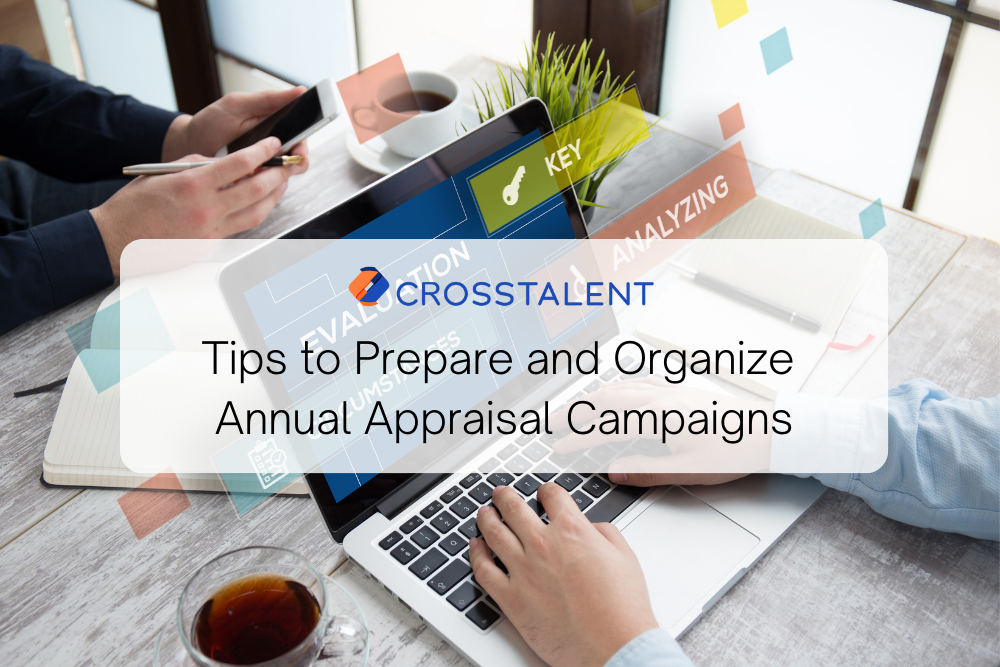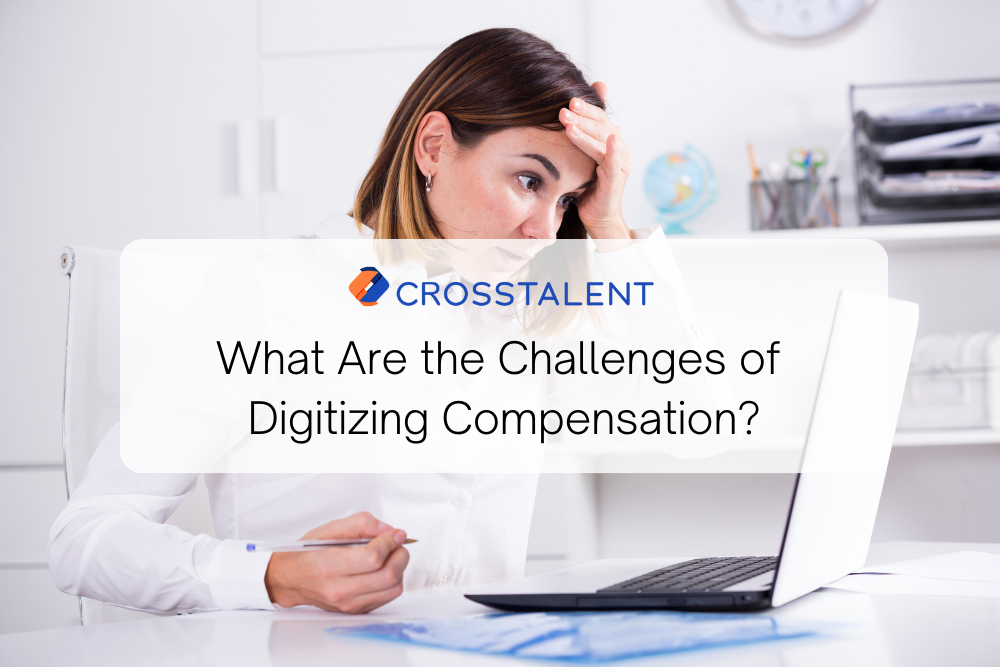The annual interview, also known as the appraisal interview, is not just a time for taking stock of the past year while planning future objectives. It should also be an opportunity to improve.
The only problem is that while HR managers in smaller organizations may be able to manage these annual reviews themselves, this becomes impossible once the number of employees exceeds a certain threshold. They then have to delegate the task of conducting these interviews to their direct managers. However, delegating does not mean relinquishing responsibility.
When HR becomes the conductor of the annual appraisal interviews, they must ensure that they run smoothly. To help you in this task and maximize the beneficial effects of yearly appraisals, we have prepared a list of 6 essential tips for organizing and managing your campaigns effectively.
Inform and Communicate With Your Managers and Employees Beforehand
The annual performance review should be seen as something other than a formality to be carried out at the end or beginning of each year. Suppose it is to have a real impact on the quality and performance of your employees’ work. In that case, it must be understood, accepted, and, above all, prepared for by both the person conducting the interview and the employee following it.
So, your company’s human resources department must ensure that everyone involved is aware of what’s at stake.
Adapt your communication and information strategy to suit the target audience. But in all cases, anticipate as much as possible. Be proactive in December to announce the annual appraisal interviews, and be proactive, both in terms of information and in terms of content and form. All parties must prepare the annual appraisal, and to do this, you need to give them time to work on it.
Present the annual appraisal as a special moment between the manager and the employee, an opportunity to discuss day-to-day difficulties together or, on the contrary, to present yourself as a source of ideas for career development.
Make your managers aware of the importance of their role in managing and motivating their teams. In this way, you’ll get them on board with the project and make them true HR relays for your employees.
Plan the Interview Schedule (Together)
At first glance, planning annual performance reviews may seem quick and easy, but the reality is quite different.
It’s not enough to select one or two weeks on your calendar and ask your managers to carry out 7 interviews a day to tell you that everything is sorted.
Conducting interviews is both physically and psychologically exhausting, so it’s crucial to make sure that your managers are up to the task. And by planning all the interviews over a short period, it’s inevitable that the quality of the interviews will suffer.
You will also have to take into account the needs and availability of each individual. Scheduling interviews can, therefore, quickly become a headache.
To ensure that this planning goes as smoothly as possible, we recommend that you :
- Determine a start and end date for the campaign, which will be spread over several weeks (between 4 and 6 weeks).
- Create a shared calendar with each manager to plan the dates and duration of the interviews together.
- Inform employees of their interview date as soon as possible and ask for confirmation.
- Plan alternative interview dates in the event of unforeseen absences, such as sick leave.
Prepare the Framework for the Interview
While it’s important to remember that annual performance reviews should be conducted on an individual basis, you can still help your managers by providing them with a framework to refer to.
Similarly, for the annual review to be optimal, it must also be prepared by the employee in question. And above all, it must be prepared in the same way by both parties.
Your role is to encourage and facilitate this exchange. To do this, you can structure your framework as follows:
- In the first part, the manager and employee can take stock of the past year. Recall the objectives that have been set, the resources allocated to meet them, and their progress. Give the protagonists the opportunity to express their feelings about what they experienced during the year. And, if necessary, what prevented them from achieving their objectives, and what could have enabled them to do so.
- In the second part, ensure that the manager can highlight the employee’s successes and qualities. Also, give them the opportunity to talk about what motivates them in their day-to-day work and what aspirations they may have.
- In the third part, define the objectives for the coming year and break them down into different levels. The advantage of dividing the objectives into stages is that they are more accessible and their achievement more concrete.
- Finally, give the employee the opportunity to express themselves on a daily basis. This is the time when they can tell you if they would like to have a pay rise, be given more responsibility or raise an underlying conflict within the team.
Thanks to Crosstalent’s Talent Management software, you can automate this interview process via a workflow of email alerts and automated portal creation. The workflow of alerts and automatic reminders enables managers and employees to receive alert notifications and interview completeness reports.
Coach Your Managers
While the purpose of the annual appraisal is to take stock of an employee’s work and behavior, they should not feel that they are on trial. Indeed, in the event of poor results, the annual appraisal should not simply consist of a list of failures and criticisms that can be leveled at the employee. It should be a tool for analyzing what has happened, but also a means of remedying it.
The manager must, therefore, bear in mind that he or she must be attentive to the employee’s needs. If a performance review is carried out to identify a problem, it should not be seen as a punishment by the employee.
For example, ask them not just to note that the objectives have not been met but to question the employee about the reasons for this failure. Was it a lack of training? A lack of resources? Or because the employee just doesn’t want to do it anymore?
The annual interview must be able to identify the source of the problem(s) so that HR can then define the appropriate strategy.
Make Sure Interviews Are Well Organized
To ensure that the interview campaign goes as smoothly as possible, you not only have to prepare for it, but you also have to ensure that it runs smoothly and pay attention to every detail.
Before and during the maintenance campaign, make sure:
- The meeting rooms are available and equipped (chairs, heating, video projector, etc.) for face-to-face interviews.
- All participants have the necessary equipment and have been able to download the applications required for remote interviews.
- The interview schedules have been distributed at least 15 days before the interview date.
Monitor the Progress of the Campaign
Check in regularly with your managers, asking them about their feelings, and don’t hesitate to give them help and advice if they feel overwhelmed by events.
Plan reminders to avoid oversights and/or schedule delays. Similarly, make sure that the actions and commitments made during annual reviews are translated into action during the year.
Ready to Boost Campaign Outcomes?
Use a dedicated HRIS solution to develop and track your annual campaigns. From training planning to management—now you can do everything from a single platform.



